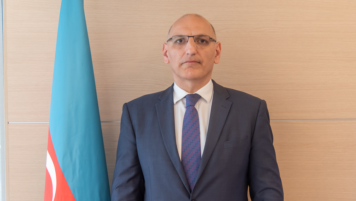By Alin K. Gregorian
Mirror-Spectator Staff
NEW YORK — The coming together of two likeminded organizations, the Near East Foundation and 100 Lives, has led to the recently announced plans for a $7 million scholarship program which will benefit 100 students from the Middle East.
Both parties are happy with the collaboration, which according to Shant Mardirossian, chairman of the Near East Foundation, is the first time that the two groups, born 100 years apart as a result of the same events — the Armenian Genocide — will collaborate.
“Our hope is to continue the collaboration with 100 Lives,” Mardirossian said.
The third party to this collaboration is United World Colleges (UWC), which has 15 schools across the world, including its latest one in Dilijan, Armenia.








